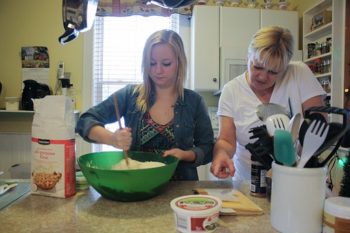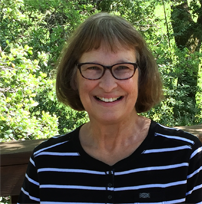10 Clean Kitchen Cooking Strategies for Families
 Parents continue to provide us with feedback that a primary challenge is how to increase play time with their children. Parents identified shortcuts that they use in the kitchen when preparing multiple meals for family members throughout the week. Listed below are the top ten strategies:
Parents continue to provide us with feedback that a primary challenge is how to increase play time with their children. Parents identified shortcuts that they use in the kitchen when preparing multiple meals for family members throughout the week. Listed below are the top ten strategies:
- Organize your kitchen before your start to cook by:
- Washing dishes or storing them in the dishwasher
- Wiping down the kitchen counters
- Setting up an accessible garbage bin
- Setting up an accessible recycle bin
- Review the recipe you plan to prepare by:
- Placing recipe ingredients on the counter
- Placing measuring cups and utensils on the counter
- Assembling the recipe
- Rinse and pickup ingredients after preparing a recipe that can include:
- Storing rinsed dishes in the dishwasher or piling them on the counter
- Picking up all used ingredients
- Cooking the recipe and storing until ready to eat
- Continue the clean kitchen cooking process that includes:
- Reviewing and preparing recipes
- Rinsing and picking up ingredients after preparing all other recipes
- Set the table for a meal when food is cooking.
- Wash all dishes or continue to load them into the dishwasher.
- Take out the garbage and recycle bins when full.
- Wipe down kitchen counters.
- Enjoy your dinner as a family with the various food courses.
- Clean-up after dinner by:
- Washing dishes or turning on the dishwasher
- Taking the garbage and recycle bins out to the garbage cans
- Wiping down kitchen counters
Parents have reported that once they use these strategies, they have one or more hours of time a day for their children and themselves. Additionally, preschool children can set the table and wipe down counters. Elementary age children can clean up dishes and load the dishwasher. Children of all ages can assist in the meal preparations and cooking. Middle school children can manage the kitchen with this process. High school students can manage the meal preparations and planning throughout the week or on specific days.
When your children assist in meal preparations, there is even more free time for family play. Your children will learn how to support the family needs. They can also learn how to organize themselves for planning and creating nutritional family dinners. These skills will support them in their academic learning and preparation for future independent living.
Happy meal time and play!
Mary Ann
Copyright © 2016 by GenParenting

Mary Ann Burke, Ed.D., Digital Education Expert, is a substitute distance learning teacher for Oak Grove School District in San Jose, California and the author of STUDENT-ENGAGED ASSESSMENT: Strategies to Empower All Learners (Rowman & Littlefield: 2020). Dr. Burke creates digital language arts and substitute teaching K – 12 activities for teachers and parents. She is the Cofounder of the Genparenting.com blog. Burke is the former Director II of Categorical & Special Projects for the Santa Clara County Office of Education that supports 31 school districts serving 272,321 students in Santa Clara County. She is also a previous Director – State & Federal Compliance for Oakland Unified School District, the former Director – Grantwriter for the Compton Unified School District, and was the initial VISTA Director for the Community Partnership Coalition in southern California. Much of her work focuses on creating innovative digital trainings and partnership programs for teachers and families to support students’ learning. These programs were featured as a best practice at a National Title I Conference, California’s Title I Conferences, AERA Conferences, an ASCD Conference, the NASSP Conference, and statewide educator conferences.

